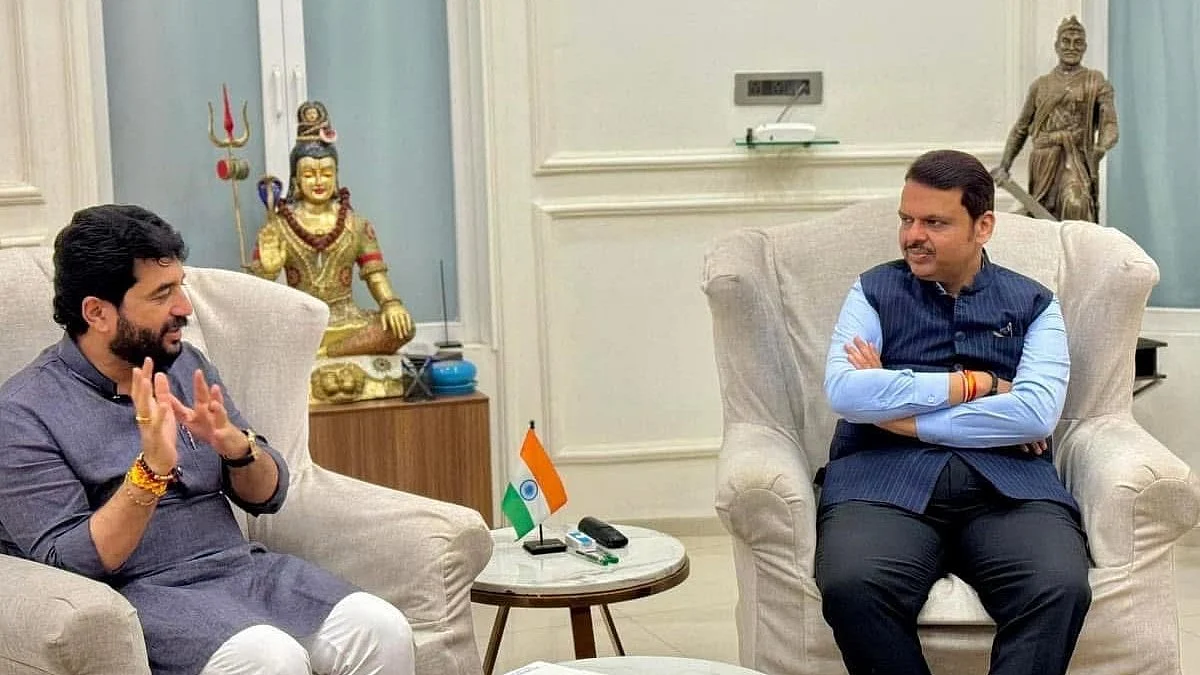As tensions between Iran and Israel intensify, global powers are getting pulled into a geopolitical whirlpool. In this hard-hitting conversation, Afrida Rahman Ali, Executive Editor of Free Press Journal’s video team, speaks to senior journalist and political commentator Ashutosh, who recently wrote a provocative article titled "A war based on ideology aims for annihilation, not mediation."
The central question: Is Israeli Prime Minister Netanyahu acting with US support—or without it?
Q: Ashutosh, is Israel acting independently in this conflict—or does Netanyahu still have America’s backing?
Ashutosh: Israel cannot carry out strikes of this magnitude on its own. Iran is not Gaza or Hamas—it’s a regional powerhouse. Israel needs US military technology, intelligence, and diplomatic cover. In fact, Donald Trump admitted that Israel had informed him in advance. This implies there’s been coordination all along, even if not formally acknowledged now.
Q: But Trump reportedly told Netanyahu not to target Ayatollah Khamenei. Is Netanyahu defying American restraint?
Ashutosh: Perhaps rhetorically, yes. But the war is also psychological. Netanyahu’s fiery statements serve strategic purposes. Trump might have warned against killing Khamenei, but such conversations prove US involvement. Netanyahu may be pushing boundaries, but not acting in a vacuum.
Q: What's in it for the United States? Why support an aggressive move against Iran now?
Ashutosh: It goes back to 1979, when the Iranian revolution ousted the US-backed Shah. That humiliation still lingers in America’s strategic memory. Since then, Iran has painted the US as the "Great Satan." Supporting Israel allows America to counter Iran without putting boots on the ground. Israel fights the US’s ideological and geopolitical war in the region.
Q: Was the killing of Iranian generals and scientists a planned joint operation?
Ashutosh: Undoubtedly. These were precise, high-level assassinations that require years of intelligence gathering. The fact that it happened right when the US-Iran nuclear talks were stalling shows calculated timing. Israel alone couldn’t have done it—it likely had US help.
Q: Is this narrative about Iranian nukes just another Iraq-style ‘WMD’ alibi?
Ashutosh: That comparison is valid. The US falsely claimed Iraq had WMDs to justify the 2003 invasion. Now, Netanyahu says Iran’s nuclear sites pose an existential threat. But Iran is not Iraq. It’s institutionally strong and deeply rooted. Ayatollah Khamenei is no Saddam Hussein.
Q: Could a regime change in Iran really be possible?
Ashutosh: The US has attempted it since 1979—unsuccessfully. Iran’s institutions are resilient. Unlike Saddam’s Iraq, Iran is not a one-man regime. The idea that Khamenei can be eliminated like Saddam is naïve and dangerous.
Q: What roles could Russia and China play in this escalating conflict?
Ashutosh: Russia is tied up in Ukraine and unlikely to open another front. But China has stronger cards. It’s been building ties with Iran and the Arab world. If China decides to back Iran openly, the equation changes drastically. Their statement at the UN—saying Israel has “crossed all red lines”—was significant.
Q: Do you think there’s a chance of de-escalation anytime soon?
Ashutosh: I think both Israel and Iran want face-saving exits. America too doesn't want an extended war, especially in an election year. The psychological warfare may give way to backchannel diplomacy. The bigger question is: who retreats first, and how?
Q: Can Israel actually destroy Iran’s nuclear sites without US help?
Ashutosh: No. Israel doesn’t have the bunker-busting weapons needed for underground Iranian facilities. That tech lies with the US. Without Washington’s direct involvement, Netanyahu’s threats remain mostly rhetorical.
Conclusion:
This conflict is far more than just military retaliation—it’s an ideological war layered with historical resentment, nuclear fears, and global alliances. As Ashutosh argues, Israel may be fighting, but it is America’s war too. Whether the next chapter brings diplomacy or disaster depends as much on Tel Aviv and Tehran as it does on Washington and Beijing.
— Interview by Afrida Rahman Ali
Executive Editor, Video, The Free Press Journal











